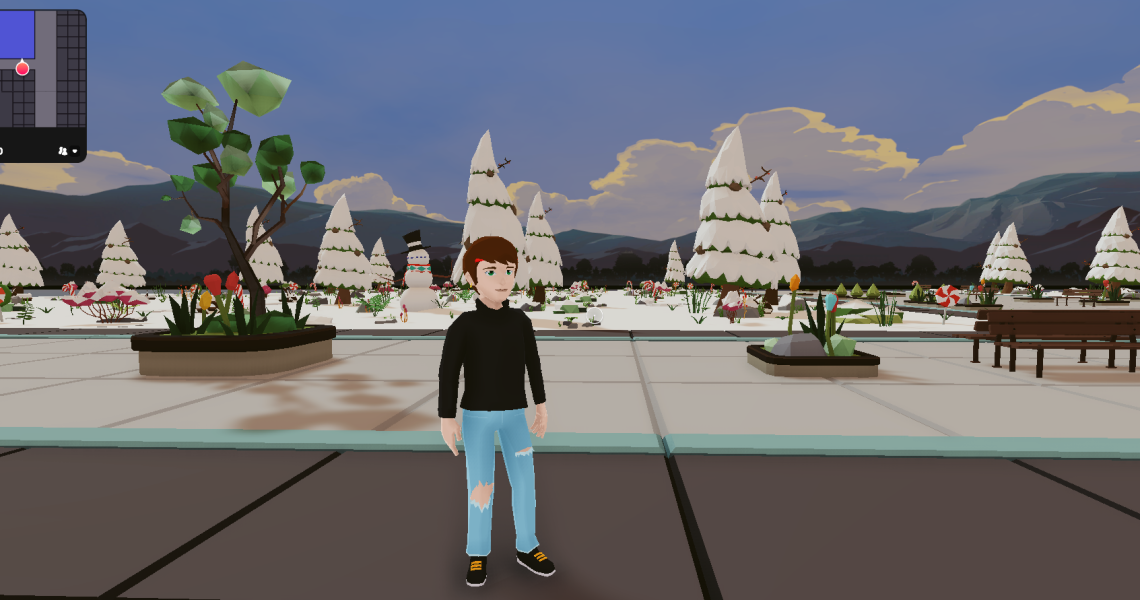With land in virtual worlds like Decentraland getting bought up, fashion brands are rethinking their approach to setting up shop in the metaverse.
The number of blockchain-backed worlds have been increasing, as fashion brands have been warming up to the concept of building worlds through small-scale activations on gaming platforms like Roblox. There’s a growing sense that the overall consumer journey into the metaverse will accelerate in 2022. As such, fashion brands are increasingly embracing opportunities created by cryptocurrency and delving deeper into blockchain worlds like Decentraland, a single-layer metaverse platform running on the Ethereum blockchain.
In partnership with Tokens.com and luxury marketplace UNXD, Metaverse Fashion Week will hit Decentraland in March, expanding the possibilities of brand experiences in the metaverse. The event is meant to replicate a traditional fashion week experience, while opening it up to the world by providing access to all. According to Andrew Kiguel, CEO of Tokens.com and chairman of the Metaverse Group, “This could end up being the most widely viewed live fashion event in history.”
In November, the Metaverse Group, a subsidiary of cryptocurrency investment company Tokens.com, bought Decentraland’s most expensive plot of land, in the Fashion Street district, for $2.4 million. “Every day, you hear about Chanel, Jimmy Choo, Nike, Adidas — every fashion brand in the world is trying to find a way to create a presence and a strategy for the metaverse,” said Kiguel. “It’s the next iteration of how people use the internet.”
Previously, Boson Protocol, a decentralized commerce platform, launched a gallery and bought space to open a virtual mall on Decentralized, for $704,000. And in June, digital real estate firm Republic Realm bought and designed the platform’s Metajuku shopping district, modeled after the real-life Harajuku district in Tokyo, Japan, for a record-breaking $913,808 MANA.
“The metaverse is more engaging than Facebook or Instagram. And on those platforms, you can contribute content, but ultimately, that corporation owns all the advertising revenue,” said Kiguel. “You could compare it to Las Vegas: One hundred years ago, it was a desert. But gradually, people started building the city, which is now a global hub for entertainment. The metaverse is the same thing.” As the shopping “areas” in Decentraland fill up, the question remains of whether heritage brands will follow. Web3 brand Dress X, a digital fashion company, launched in the Metajuku district in August.
Gaming platforms like Roblox have become popular among fashion brands. Orchestrated by brands from Gucci to Tommy Hilfiger to Forever 21, the platform has housed a range of initiatives aimed at getting consumers to engage in brand worlds. Roblox has also played host to fashion events like the British Fashion Council’s Fashion Awards.
Unlike gaming platforms like Roblox, Decentraland, which opened to the public in 2020, operates on MENA cryptocurrency. So, as with any crypto platform, the whole platform is run by its users, without a central point of control. And it can be a place to buy and trade NFTs.
Some brands, like fast-fashion giant H&M, have been coy about their entry into the space. Last week, H&M negated rumors that it had entered the metaverse in partnership with CEEK, a metaverse coin project with a virtual world. This response may have been driven by the many Web3 creatives who criticized the project for lacking the creativity needed for a Web3-native environment and simply being a replication of a store.
Ana Andjelic, brand strategy executive and fashion business sociologist, pointed to virtual gallery space Super Rare to illustrate the need to understand the platform and its users, as a starting point before going there. “With Super Rare, you can set up your own space within a wider ecosystem that is already set up. The people are already there and the communities have already formed. If you go into Decentraland and you buy land there, the question is: What are you going to set up there? While it’s better to build upon what already exists, it doesn’t work to just say, ‘This is my shop.’ It needs to be something that’s Web3-unique, that adheres to the economic and cultural dynamic that exists in Web3. It has to be decentralized, community-driven and curated. “
With the launch of more experimental projects, like Nike’s Nikeland and Gucci’s Garden in Roblox, brands are seeing that, when placed into digital platforms, traditional store experiences are lacking. Now, the way that you enter the metaverse while engaging in cryptocurrency is as important as when.




